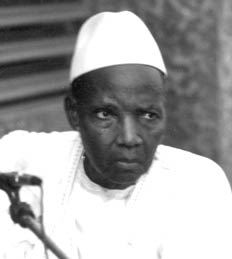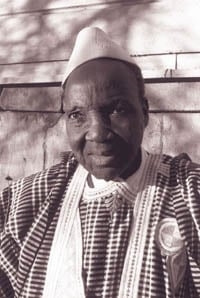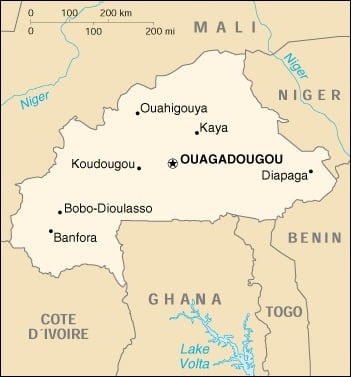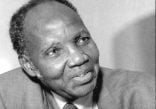"We must rebuild the identity from which the African peoples have become alienated..."
 |
Joseph Ki-Zerbo was born in 1922 in Burkina Faso, a country in Western Africa. He was educated both in his home country and at the prestigious Sorbonne in France. Ki-Zerbo earned his degree in history, with honors, and returned to Africa.
Once back in Burkina Faso, Ki-Zerbo began his journey of political activism and human rights. His focus was on the idea of endogenous development. Endogenous development is a practice that lets native farmers use their own ideas and traditions alongside new technology. It incorporates the ideas and knowledge of indigenous cultures rather than disregarding them.
 |
| Photo courtesy of the Right Livelihood awards |
Ki-Zerbo believed that integrating local farmers' techniques and beliefs with modern technology was the only sensitive and efficient way to help Africans retain their control of their country's agriculture.
As a historian, he has published a number of books with endogenous development as the central theme. From 1972 to 1978, Ki-Zerbo was a member of UNESCO's Executive Council, and was a professor at Burkina Faso's Universite d'Ouagadougou.
In 1980, Ki-Zerbo founded the Centre d'Etudes pour le Developpement Africain (CEDA). He said, "CEDA conducts research which is actually rooted in our land...capable of integrating ecological preservation, the social praxis and cultural identity, key sectors which are almost invariably treated as secondary in development projects."
 |
Ki-Zerbo's revolutionary ideas led to his exile by the military regime in 1983. Though he was not allowed back to his home country, he continued to work for Burkina Faso's people by establishing an organization similar to CEDA in Senegal. He organized inter-African meetings and published books, one of which garnered a prize at the Dakar Book Fair in 1993.
 |
Finally, Ki-Zerbo was allowed back to Burkina Faso in 1992. Though his entire library had been destroyed by the military regime, he decided to re-establish CEDA. He vowed to "return the institutional imagination of African societies to their tradition of creativity across the widest possible range of science and technology..."
As an activist, historian and political leader, Ki-Zerbo's knowledge and devotion to Africa have garnered him global recognition. In 1997, the Right Livelihood Awards (or the Alternate Nobel Prizes) recognized Ki-Zerbo's efforts.
Ki-Zerbo sums his philosophy up in the following quote:
"The Africa which the world needs is a continent able to stand up, to walk on its own feet...It is an Africa conscious of its own past and able to keep on reinvesting this past into its present and future."
Page created on 12/5/2007 12:01:55 PM
Last edited 4/19/2024 6:19:42 PM
